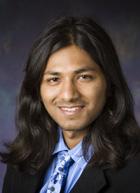event
SCS Talk: Prateek Mital, University of California at Berkeley
Primary tabs
SCS Talk: Prateek Mittal, University of California at Berkeley
Title: Trustworthy Communications Using Network Science
Abstract
Our online communications are plagued by increasing threats to security and privacy. Sophisticated surveillance technologies can compromise user privacy, and the insecurity of network protocols threatens the safety of our critical infrastructure. In this talk, I argue that network science can play an important role in cybersecurity by illustrating how understanding and manipulating structural properties of networks can inform the design of trustworthy communication systems.
First, I will discuss how network structure can be leveraged to detect and isolate malicious (Sybil) accounts in online social networks. The SybilInfer system that I developed uses this approach by exploiting differences in mixing properties between benign accounts and malicious accounts. SybilInfer demonstrates how graph theoretic machine learning techniques can be applied to security problems. Second, I will discuss how specially designed network structures can help protect users’ privacy by enabling them to communicate anonymously. The ShadowWalker system that I developed for anonymous communication is built around a novel network topology, which is both fast mixing and inherently verifiable. This allows ShadowWalker to scale to millions of users while being resilient to attacks on user privacy. Finally, I will conclude by highlighting the potential of leveraging complex network structures in a broad range of security and privacy problems.
Bio
Prateek Mittal is a postdoctoral scholar in Electrical Engineering and Computer Sciences at the University of California, Berkeley. His research focuses on building secure and privacy-preserving systems, drawing on techniques from applied cryptography, distributed systems, large scale machine learning and network science. His work has influenced the design of widely-used systems such as the Tor network. He received the M.E. Van Valkenburg graduate research award for outstanding doctoral research, the Rambus Computer Engineering fellowship, and the ACM CCS 2008 outstanding paper award. He earned his M.S. and Ph.D. in Electrical and Computer Engineering at the University of Illinois at Urbana-Champaign.
Groups
Status
- Workflow status: Published
- Created by: Antonette Benford
- Created: 04/22/2013
- Modified By: Fletcher Moore
- Modified: 10/07/2016
Categories
Keywords
User Data

